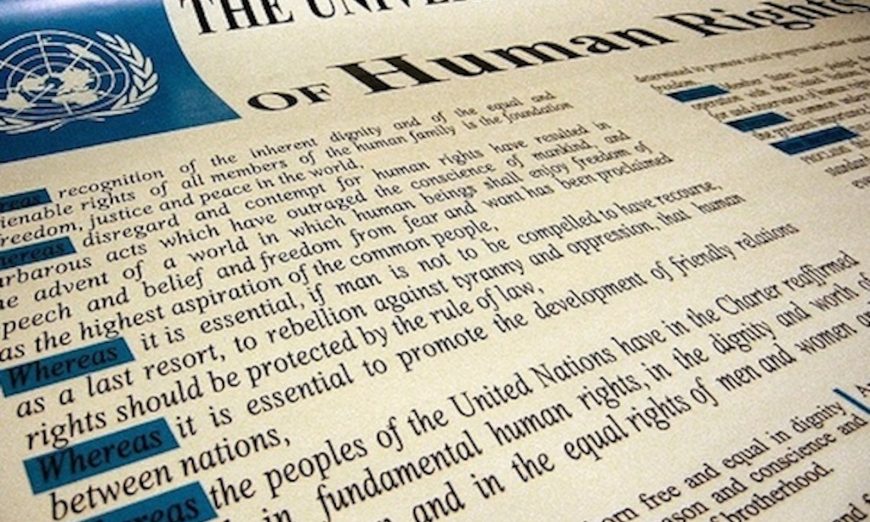Roberto Frifrini
“Everyone is entitled to all the rights and freedoms set forth in this Declaration, without distinction of any kind, such as race, colour, sex, language, religion, political or other opinion, national or social origin, property, birth or other status.”
This is the literal quotation of Article 2 of the 1948 Universal Declaration of Human Rights (UDHR), one of the most important articles in fighting against violations of people’s fundamental rights — the well-known right to non-discrimination. With the same words, Article 14 of the European Convention on Human Rights (ECHR) remarks the importance of this provision within the EU’s corpus juris. Although clearly institutionalized within legal international tools, the benefit does not seem to own the same strength as other fundamental freedoms: Its boundaries are blurred and easily penetrable; moreover, the idea of non-discrimination is strictly connected to several variables, from the time in which the violation was committed up to the social fabric of the structure in which the misbehavior took place.
Due to these factors, I personally consider the prescription as a legislative hybrid, a figure somewhere between the reality of the right and the conceptualization of the claim. To fully implement it, other social sciences must come to rescue this fundamental freedom from the pure legislative requirements. A sociological approach is needed to draw the border of the provision’s intrinsic efficiency and identify its possible infractions.
As members of the human race, we all have the right to non-discrimination and the prohibition of discrimination but, despite this, intolerance towards others is one of the most common human rights violations and, often, the starting point for further crimes. Any breach of the ban to discriminate involves an evolution of civil society, a progress that allows to better sharpen the limits of the statement.
The discriminatory attitude, as limpidly expressed by the UDHR and the ECHR, may be based on several roots and have different developments. The prismatic ground provided for the freedom obliges people to approach the issue from a particularistic perspective, trying to understand the reasons for the bias and to overcome it. Adopting this behavior, modern society is experiencing a rapidly growing process towards the comprehension and integration of all individuals.
Unfortunately, one part of mankind is seemingly not allowed to enjoy the abovementioned social evolution. On the contrary, this community suffers from a reinforced stigma against it: the Roma population. Despite all the inclusion policies provided, not least the EU’s Council Recommendation on effective Roma integration measures adopted last Monday, by taking a quick look at various NGO reports and monitoring the newspapers of various countries, we can observe how the Roma people are suffering from a form of “discrimination without borders” all over Europe.
From the declaration made by Bursa’s governor last September in which the public authority labeled the community’s members as criminals, to the forced evictions or housing problems suffered in Italy and France this autumn and the child removal cases faced in Greece and Ireland, there is no doubt that the Roma minority is coping with a serious racism based on irrational stereotypes every day.
According to a survey by French news website Rue 89, it is clear that the apartheid towards the Roma is seen as the last acceptable one; furthermore, using the words of sociologist Mustapha Saha, members of the community are, a priori and without the presumption of innocence, guilty of any crime due to their ethnicity.
The integration of the Roma population and the elimination of prejudices towards it must inevitably pass through a direct comparison among stereotypes and basic human rights granted by the aforesaid charters: A compliant particularistic approach would be the best manner to eradicate this constant stigmatization and finally allow the minority to enjoy basic universal rights.
Roberto Frifrini is a member of the Human Rights Agenda Association (İHGD) in Ankara.
http://www.todayszaman.com//news-333901-roma-target-a-pan-european-stigma-by-roberto-frifrini-.html

